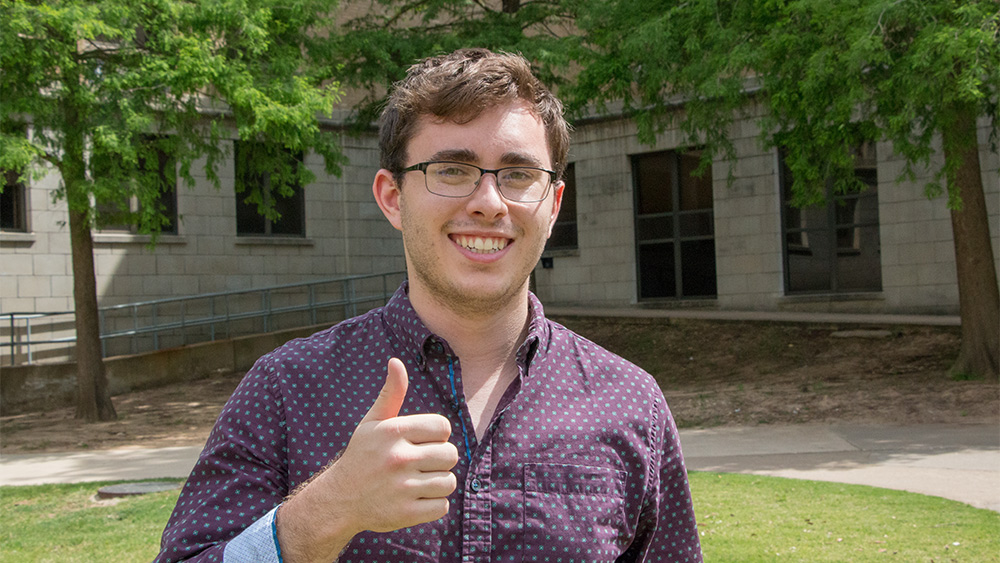
Cole Fincher was one of two students to receive the 2019 College of Engineering Outstanding Graduate Student Award, which is given annually to one master’s student and one doctoral student.
Fincher is currently pursuing a master’s degree in mechanical engineering in the J. Mike Walker '66 Department of Mechanical Engineering at Texas A&M University.
“I’m thankful for my advisors and collaborators who have built an environment where I can both learn and contribute,” Fincher said. “I’m looking forward to continuing to work and learn together.”
Fincher, who is advised by assistant professor Matt Pharr, earned a bachelor’s degree in mechanical engineering from the department before continuing his studies in the master’s program. In 2018 he was awarded the National Science Foundation’s (NSF) Graduate Research Fellowship, an honor bestowed upon only the most outstanding graduate students pursuing research-based master’s and doctoral degrees.
Fincher is interested in the development of alkali metal and metal-alloy anodes toward solid-state battery systems and has thus far authored 10 publications focusing on his research on the mechanics of batteries, with several more to come.
The pursuit of higher capacity batteries has long been an objective of scientists and engineers, with some promising materials like lithium metal being put on hold due to potential safety issues. It is a problem Fincher is enthusiastic about exploring.
“I’m excited to work on research that addresses these safety issues toward enabling ultra-high capacity lithium metal batteries,” Fincher said. “Not only would this make lighter and longer-lasting phone batteries, but such batteries may enable new technologies like electric planes.”
He said he also enjoys working with and mentoring undergraduates in the laboratory, as well as participating in scientific outreach programs for high school and middle school students.
“Working with undergrads helps me to be a better scientist overall,” Fincher said. “They challenge me to structure my work more thoroughly, and mentoring them also helps me to reinforce concepts that I have learned.”
Following graduation, Fincher plans to pursue a doctorate with the goal of seeking a faculty position.